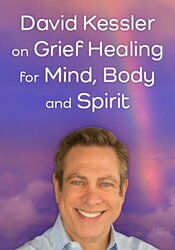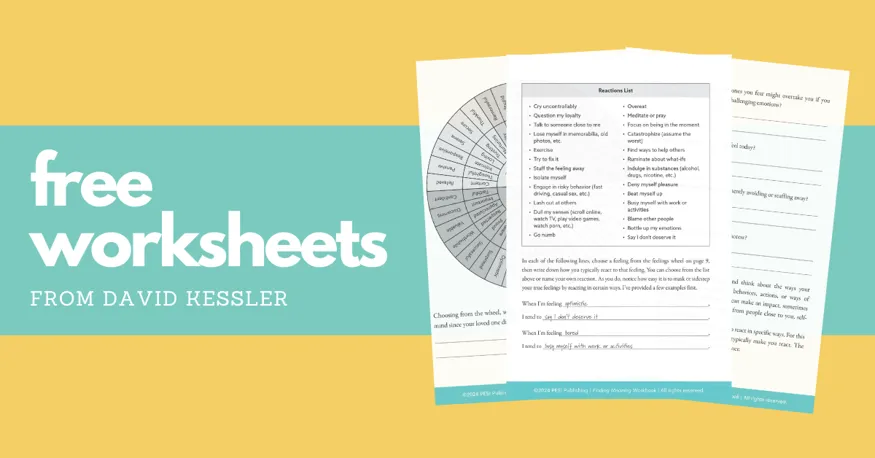Navigating the Grief Journey

Every loss is unique, and that’s why it’s important for each person to process it in their own way. It’s crucial to encourage clients to honor their own grief, as no one else can fully understand their relationship with their loved one. Sometimes, it may be necessary to help them revisit their assumptions about grief, especially if they feel stuck. Beliefs about how long they grieve, or their emotions around grief can significantly impact their healing process. Thoughts about grief shape how we find meaning, making it essential to explore perceptions, feelings, and sensations around loss. Whether a griever is just beginning this path of sorrow, or has been on this path for some time, it’s important to validate their experience and remind them that their journey is uniquely theirs.
Sadly, there is a lot of judgment surrounding grief—from society, family, and those who haven’t experienced a loss. Every grieving period is unique, and nobody can fully relate to how an individual processes sorrow. These judgments can hinder the grieving process, especially when individuals judge themselves. They might think, “It’s been a year, why am I still crying?” or “It’s been five years, why am I not over this?” People often believe that they should be in a different place emotionally. It isn’t about the time that has passed since a loved one died, but rather about their relationship with grief itself.
Grief emotions can often include:
People often fear sorrowful feelings because they never allow themselves to fully experience each emotion. Instead, they have emotions about their emotions. They feel sad, then guilty for being sad because someone else has it worse, which interrupts their sadness before they fully feel it. Sometimes they get angry and judge their anger, leading to self-judgment for feeling these intense emotions. Other times they feel sad while thinking they should be grateful. This cycle continues. It is important to encourage those dealing with grief to ignore the judgments their mind makes about their feelings and try to identify the emotions that arise most naturally and frequently for them. This process takes time and can be challenging, but nothing will be as hard as what has already been endured.
The journey through grief is a deeply personal and unique experience for every griever. It’s essential to honor and validate everyone's unique grieving process, free from societal judgments and self-imposed expectations. By understanding and embracing big emotions, individuals can navigate their grief with compassion and patience, ultimately finding a way to grieve with more love than pain. Encouraging a non-judgmental exploration of sorrowful feelings allows for a more authentic and healing experience, reminding grievers that their path through their sorrow is uniquely their own.
Help your clients further their healing journey with these printable worksheets straight from David Kessler's new workbook Finding Meaning Workbook. This workbook is designed to guide individuals through their pain with patience and compassion, and the exercises you'll find in it are designed to help your grieving clients find meaning and provide new ways to endure and grow from loss.
The Timeline of Grief
“How long is grief supposed to last?” is a question that many grieving individuals like to ask. There is no set timeline for grieving after losing someone. The better question is, “How long will the person who passed away remain gone?” As long as they are gone, the grief will continue. While people will always grieve, this doesn’t mean that they will always grieve with pain. The main goal is to eventually, and at their own pace, learn to grieve with more love than pain.Sadly, there is a lot of judgment surrounding grief—from society, family, and those who haven’t experienced a loss. Every grieving period is unique, and nobody can fully relate to how an individual processes sorrow. These judgments can hinder the grieving process, especially when individuals judge themselves. They might think, “It’s been a year, why am I still crying?” or “It’s been five years, why am I not over this?” People often believe that they should be in a different place emotionally. It isn’t about the time that has passed since a loved one died, but rather about their relationship with grief itself.
Understanding Heavy Feelings During Grieving Periods
Healing begins with understanding one’s emotions. While confronting frightening emotions can be daunting, it is a crucial step in the healing process.Grief emotions can often include:
- Anger
- Sadness
- Numbness
- Yearning
- Shock
- Other painful feelings
People often fear sorrowful feelings because they never allow themselves to fully experience each emotion. Instead, they have emotions about their emotions. They feel sad, then guilty for being sad because someone else has it worse, which interrupts their sadness before they fully feel it. Sometimes they get angry and judge their anger, leading to self-judgment for feeling these intense emotions. Other times they feel sad while thinking they should be grateful. This cycle continues. It is important to encourage those dealing with grief to ignore the judgments their mind makes about their feelings and try to identify the emotions that arise most naturally and frequently for them. This process takes time and can be challenging, but nothing will be as hard as what has already been endured.
The journey through grief is a deeply personal and unique experience for every griever. It’s essential to honor and validate everyone's unique grieving process, free from societal judgments and self-imposed expectations. By understanding and embracing big emotions, individuals can navigate their grief with compassion and patience, ultimately finding a way to grieve with more love than pain. Encouraging a non-judgmental exploration of sorrowful feelings allows for a more authentic and healing experience, reminding grievers that their path through their sorrow is uniquely their own.
Help your clients further their healing journey with these printable worksheets straight from David Kessler's new workbook Finding Meaning Workbook. This workbook is designed to guide individuals through their pain with patience and compassion, and the exercises you'll find in it are designed to help your grieving clients find meaning and provide new ways to endure and grow from loss.
Finding Meaning:
The Sixth Sense of Grief Workbook: Tools for Releasing Pain and Remembering with Love
The Sixth Sense of Grief Workbook: Tools for Releasing Pain and Remembering with Love

International grief expert and noted author David Kessler has spent decades working with thousands of people experiencing the depths of their grief. He knows the pain deeply, personally. And he also knows the path to begin to find hope, and healing, again. And it is in that love where you can find meaning.
Written with warmth, sensitivity, and unique insight, you’ll feel like you are sitting with David, having a conversation along your path to healing. This workbook is filled with self-reflective exercises, journaling opportunities and warmhearted guidance for your clients to navigate their grief journey.
Written with warmth, sensitivity, and unique insight, you’ll feel like you are sitting with David, having a conversation along your path to healing. This workbook is filled with self-reflective exercises, journaling opportunities and warmhearted guidance for your clients to navigate their grief journey.
David Kessler on Grief Healing for Mind, Body and Spirit

Join renowned grief expert David Kessler and learn to heal grief with mind-body techniques that combine breathwork, movement, sound, yoga, and more. Gain skills that will help your clients to find acceptance, resolve guilt, overcome triggers, shame, and more. PLUS, get bonus content on addiction, preserving memories, and more!






